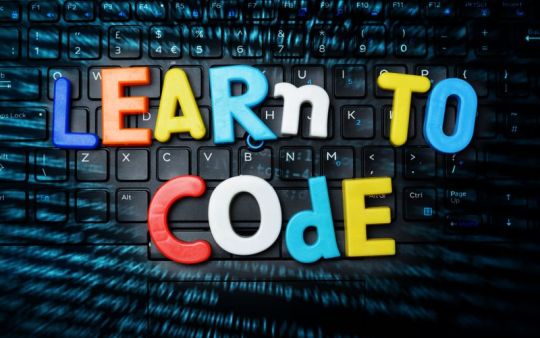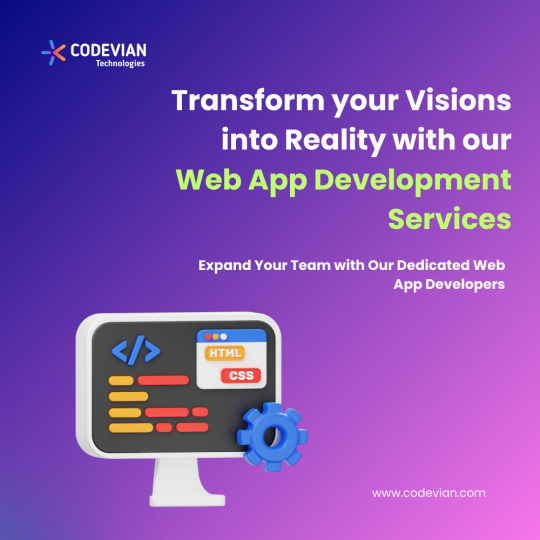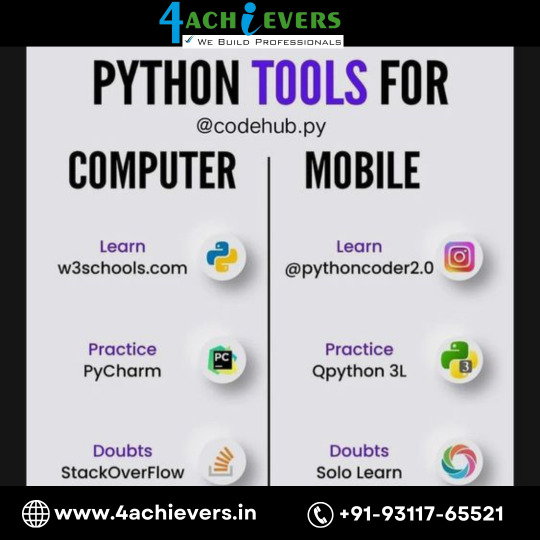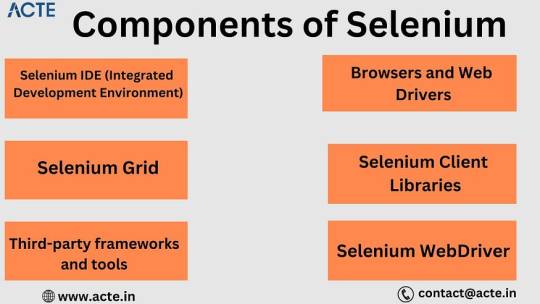#developing mobile apps using python
Explore tagged Tumblr posts
Text
Top Benefits of Developing Cross-Platform Mobile Apps Using Python

Discover the top benefits of developing cross-platform mobile apps using Python. Learn how Python streamlines app development, enhances performance, reduces costs, and provides flexibility for creating scalable apps across multiple platforms. Visit now to read more: Top Benefits of Developing Cross-Platform Mobile Apps Using Python
#python mobile app development#python mobile development#mobile app development with python#python mobile app framework#python for mobile apps#python mobile app frameworks#python mobile app development framework#python framework for mobile app development#cross platform app development with python#python for mobile app development#best python framework for app development#mobile application development with python#best python framework for mobile app development#cross platform app development python#Cross-platform app development#Cross-platform mobile app development#developing mobile apps using python#mobile app python framework#mobile apps with python#python cross platform app development#python cross platform mobile app
0 notes
Text

Summer Internship Program 2024
For More Details Visit Our Website - internship.learnandbuild.in
#machine learning#programming#python#linux#data science#data scientist#frontend web development#backend web development#salesforce admin#salesforce development#cloud AI with AWS#Internet of things & AI#Cyber security#Mobile App Development using flutter#data structures & algorithms#java core#python programming#summer internship program#summer internship program 2024
2 notes
·
View notes
Text
i need more mutuals who are into coding and engineering!! more info under the cut!!
I planned to become an electrical engineer like my stepdad but then I decided to change my path to programming. I'm currently studying at technikum (<- wikipedia link so I don't have to explain the whole polish learning system), programmer major.
this year I have exams from web development (10th Jan - theory, 16th Jan - practical exams) and next year I have exams from App development (both mobile and desktop).
I know C family languages, Java, Python and those ones I am currently using. I also know a bit of Kotlin and I think I will continue learning it.
For web dev I know HTML and CSS ofc but also PHP and JS.
Planning on learning more languages I can use for App and operating system development as well as just to know them cause I want to after this year's exams!
my learning list:
Lua (I heard it's easy but I can't really get myself to read anything about this atm idk why)
Ruby
Assembly
Rust
As for electrical engineering I don't know much tbh but I would like to learn! I just used CAD programs for technical drawings (dad taught me some basic things when I was still thinking about going his path) helped my dad fix things on his Solar farm, houses of our neighbors and I made a few very simple circuits for fun a few years ago. Now I'm mostly focused on programming but since I learned most of the things I need for exams I have more time to do whatever I want now!
I'd like to get to know more people so I can share and mostly learn new things since even though I'm coding for years I consider myself a beginner and I am a total beginner when it comes to electrical engineering.
I'm willing to be friends or at least mutuals with anyone who codes or makes websites or is in STEM! no matter what your specialty/interest is exactly and no matter if you are a total beginner or a professional ^__^
I'd also like to have some mutuals who are into old web development and retro computing!!!!!!!!
edit: I forgot but I'm also interested in physics and quantum physics
#dear.diary୨୧#stemblr#women in stem#stem#programming#coding#web development#web design#old web#retrocomputing#computing#engineering#technology#techindustry#computers#computer#templeos#terry a davis#terry davis#linux#open source#github#calculus#physics#quantum physics#mathblr#mathematics
32 notes
·
View notes
Text
Harvard University Free IT Courses | Resources ✨
While scrolling through Twitter, I saw some posts that highlighted some free IT courses and resources being offered by Harvard University! Harvard University offers a wide range of IT courses that are available to the public for free! Here are some of them!

1. Introduction to Computer Science - LINK
An introduction to the intellectual enterprises of computer science and the art of programming.
2. Web Programming with Python and JavaScript - LINK
This course dives more deeply into the design and implementation of web apps with Python, JavaScript, and SQL using frameworks like Django, React, and Bootstrap.
3. Mobile App Development with React Native - LINK
Learn about mobile app development with React Native, a popular framework maintained by Facebook that enables cross-platform native apps using JavaScript without Java or Swift.
4. Introduction to Game Development - LINK
Learn about the development of 2D and 3D interactive games in this hands-on course, as you explore the design of games such as Super Mario Bros., Pokémon, Angry Birds, and more.
5. Introduction to Artificial Intelligence with Python - LINK
Learn to use machine learning in Python in this introductory course on artificial intelligence.

Hope this helps someone and do check them out! 💻👍🏾💗
#resources#codeblr#progblr#studyblr#studying#coding#programming#comp sci#programmer#computer science#student#study life#coding resources#coding study#online learning#online study#free courses#courses
956 notes
·
View notes
Text
Admissions Open at MDIDM Infoway! 🎓 Looking for the right skills to land your dream job? Learn from industry experts & gain real-world experience in: ✅ Full Stack Web Development – Master front-end & back-end ✅ Graphic Design & UI/UX – Become a creative pro ✅ Android & Flutter Development – Build mobile apps ✅ Advanced Python & SEO – Stay ahead in tech ✅ AI Tools like Chat GTP & Gemini – Boost productivity 💼 Why Choose Us? 🔹 Industrial Internship & Hands-on Projects 🔹 1:1 Doubt Solving & Individual Learning 🔹 100% Placement Assistance 🚀 Future-Proof Your Career with Industry-Relevant Skills! 📍 Rajkot 📞 Call Now: +91 94265 26980 | +91 83471 93531 #MDIDMInfoway #ITCourses #WebDevelopment #GraphicDesign #AI #Python #SEO #AndroidDevelopment #Flutter #CareerGrowth #TechSkills #PHPDevelopment #BackendDevelopment #FrontendDeveloment #MobielAppDevelopment #AndroidDevelopment #FlutterDevelopment #Coressplatformdevelopment #RajkotITCompany #ITcompanyIndia #TechCompany #SoftwereDevelopment #ITServices #RajkotDevelopers

2 notes
·
View notes
Text
Top 10 In- Demand Tech Jobs in 2025

Technology is growing faster than ever, and so is the need for skilled professionals in the field. From artificial intelligence to cloud computing, businesses are looking for experts who can keep up with the latest advancements. These tech jobs not only pay well but also offer great career growth and exciting challenges.
In this blog, we’ll look at the top 10 tech jobs that are in high demand today. Whether you’re starting your career or thinking of learning new skills, these jobs can help you plan a bright future in the tech world.
1. AI and Machine Learning Specialists
Artificial Intelligence (AI) and Machine Learning are changing the game by helping machines learn and improve on their own without needing step-by-step instructions. They’re being used in many areas, like chatbots, spotting fraud, and predicting trends.
Key Skills: Python, TensorFlow, PyTorch, data analysis, deep learning, and natural language processing (NLP).
Industries Hiring: Healthcare, finance, retail, and manufacturing.
Career Tip: Keep up with AI and machine learning by working on projects and getting an AI certification. Joining AI hackathons helps you learn and meet others in the field.
2. Data Scientists
Data scientists work with large sets of data to find patterns, trends, and useful insights that help businesses make smart decisions. They play a key role in everything from personalized marketing to predicting health outcomes.
Key Skills: Data visualization, statistical analysis, R, Python, SQL, and data mining.
Industries Hiring: E-commerce, telecommunications, and pharmaceuticals.
Career Tip: Work with real-world data and build a strong portfolio to showcase your skills. Earning certifications in data science tools can help you stand out.
3. Cloud Computing Engineers: These professionals create and manage cloud systems that allow businesses to store data and run apps without needing physical servers, making operations more efficient.
Key Skills: AWS, Azure, Google Cloud Platform (GCP), DevOps, and containerization (Docker, Kubernetes).
Industries Hiring: IT services, startups, and enterprises undergoing digital transformation.
Career Tip: Get certified in cloud platforms like AWS (e.g., AWS Certified Solutions Architect).
4. Cybersecurity Experts
Cybersecurity professionals protect companies from data breaches, malware, and other online threats. As remote work grows, keeping digital information safe is more crucial than ever.
Key Skills: Ethical hacking, penetration testing, risk management, and cybersecurity tools.
Industries Hiring: Banking, IT, and government agencies.
Career Tip: Stay updated on new cybersecurity threats and trends. Certifications like CEH (Certified Ethical Hacker) or CISSP (Certified Information Systems Security Professional) can help you advance in your career.
5. Full-Stack Developers
Full-stack developers are skilled programmers who can work on both the front-end (what users see) and the back-end (server and database) of web applications.
Key Skills: JavaScript, React, Node.js, HTML/CSS, and APIs.
Industries Hiring: Tech startups, e-commerce, and digital media.
Career Tip: Create a strong GitHub profile with projects that highlight your full-stack skills. Learn popular frameworks like React Native to expand into mobile app development.
6. DevOps Engineers
DevOps engineers help make software faster and more reliable by connecting development and operations teams. They streamline the process for quicker deployments.
Key Skills: CI/CD pipelines, automation tools, scripting, and system administration.
Industries Hiring: SaaS companies, cloud service providers, and enterprise IT.
Career Tip: Earn key tools like Jenkins, Ansible, and Kubernetes, and develop scripting skills in languages like Bash or Python. Earning a DevOps certification is a plus and can enhance your expertise in the field.
7. Blockchain Developers
They build secure, transparent, and unchangeable systems. Blockchain is not just for cryptocurrencies; it’s also used in tracking supply chains, managing healthcare records, and even in voting systems.
Key Skills: Solidity, Ethereum, smart contracts, cryptography, and DApp development.
Industries Hiring: Fintech, logistics, and healthcare.
Career Tip: Create and share your own blockchain projects to show your skills. Joining blockchain communities can help you learn more and connect with others in the field.
8. Robotics Engineers
Robotics engineers design, build, and program robots to do tasks faster or safer than humans. Their work is especially important in industries like manufacturing and healthcare.
Key Skills: Programming (C++, Python), robotics process automation (RPA), and mechanical engineering.
Industries Hiring: Automotive, healthcare, and logistics.
Career Tip: Stay updated on new trends like self-driving cars and AI in robotics.
9. Internet of Things (IoT) Specialists
IoT specialists work on systems that connect devices to the internet, allowing them to communicate and be controlled easily. This is crucial for creating smart cities, homes, and industries.
Key Skills: Embedded systems, wireless communication protocols, data analytics, and IoT platforms.
Industries Hiring: Consumer electronics, automotive, and smart city projects.
Career Tip: Create IoT prototypes and learn to use platforms like AWS IoT or Microsoft Azure IoT. Stay updated on 5G technology and edge computing trends.
10. Product Managers
Product managers oversee the development of products, from idea to launch, making sure they are both technically possible and meet market demands. They connect technical teams with business stakeholders.
Key Skills: Agile methodologies, market research, UX design, and project management.
Industries Hiring: Software development, e-commerce, and SaaS companies.
Career Tip: Work on improving your communication and leadership skills. Getting certifications like PMP (Project Management Professional) or CSPO (Certified Scrum Product Owner) can help you advance.
Importance of Upskilling in the Tech Industry
Stay Up-to-Date: Technology changes fast, and learning new skills helps you keep up with the latest trends and tools.
Grow in Your Career: By learning new skills, you open doors to better job opportunities and promotions.
Earn a Higher Salary: The more skills you have, the more valuable you are to employers, which can lead to higher-paying jobs.
Feel More Confident: Learning new things makes you feel more prepared and ready to take on tougher tasks.
Adapt to Changes: Technology keeps evolving, and upskilling helps you stay flexible and ready for any new changes in the industry.
Top Companies Hiring for These Roles
Global Tech Giants: Google, Microsoft, Amazon, and IBM.
Startups: Fintech, health tech, and AI-based startups are often at the forefront of innovation.
Consulting Firms: Companies like Accenture, Deloitte, and PwC increasingly seek tech talent.
In conclusion, the tech world is constantly changing, and staying updated is key to having a successful career. In 2025, jobs in fields like AI, cybersecurity, data science, and software development will be in high demand. By learning the right skills and keeping up with new trends, you can prepare yourself for these exciting roles. Whether you're just starting or looking to improve your skills, the tech industry offers many opportunities for growth and success.
#Top 10 Tech Jobs in 2025#In- Demand Tech Jobs#High paying Tech Jobs#artificial intelligence#datascience#cybersecurity
2 notes
·
View notes
Text
How to Learn Programming?
Learning to code can be a rewarding and empowering journey. Here are some steps to help you get started:

Define Your Purpose:
Understand why you want to learn to code. Whether it's for a career change, personal projects, or just for fun, having a clear goal will guide your learning path.
Choose a Programming Language:
Select a language based on your goals. For beginners, languages like Python, JavaScript, or Ruby are often recommended due to their readability and versatility.
Start with the Basics:
Familiarize yourself with fundamental concepts such as variables, data types, loops, and conditional statements. Online platforms like Codecademy, Khan Academy, or freeCodeCamp offer interactive lessons.
Practice Regularly:
Coding is a skill that improves with practice. Set aside dedicated time each day or week to code and reinforce what you've learned.
Build Simple Projects:
Apply your knowledge by working on small projects. This helps you gain hands-on experience and keeps you motivated.
Read Code:
Study existing code, whether it's open-source projects or examples in documentation. This helps you understand different coding styles and best practices.
Ask for Help:
Don't hesitate to ask questions on forums like Stack Overflow or Reddit when you encounter difficulties. Learning from others and getting feedback is crucial.
Join Coding Communities:
Engage with the coding community to stay motivated and learn from others. Platforms like GitHub, Stack Overflow, and coding forums provide opportunities to connect with fellow learners and experienced developers.
Explore Specializations:
As you gain more experience, explore different areas like web development, data science, machine learning, or mobile app development. Specializing can open up more opportunities and align with your interests.
Read Documentation:
Learn to navigate documentation for programming languages and libraries. It's a crucial skill for developers, as it helps you understand how to use different tools and resources effectively.
Stay Updated:
The tech industry evolves rapidly. Follow coding blogs, subscribe to newsletters, and stay informed about new developments and best practices.
Build a Portfolio:
Showcase your projects on platforms like GitHub to create a portfolio. It demonstrates your skills to potential employers or collaborators.
Remember, learning to code is a continuous process, and it's okay to face challenges along the way. Stay persistent, break down complex problems, and celebrate small victories.
7 notes
·
View notes
Text
Top Courses for Aspiring Developers: Elevate Your Skills and Career
Nowadays everyone wants to enhance their skills and career. Everyone wants to improve their skills and take their career forward. You want to improve their skill and take your software development career to the next level.
Today’s tech-driven world, aspiring developers are in high demand. Here’s a guide to some of the top courses designed to elevate your skills and boost your career prospects in the field of software development. Developers use web development languages to help create dynamic web pages. The most common coding languages include Javascript, Python and C. we must constantly update our skills. We should assume good skills that will take our career forward. In this article, we will suggest courses that can help to make software developers.
1. Full-Stack Web Development
This course covers everything from front-end technologies like HTML, CSS, and JavaScript to back-end development with Node.js and Express. It’s ideal for those who want to become proficient in both client and server-side programming.
2. Data Science and Machine Learning
This specialization includes courses on machine learning, data mining, and data analysis. It provides a deep dive into algorithms, statistical methods, and practical applications.
3. Cloud Computing
This course prepares you for the AWS Certified Solutions Architect exam. It covers designing distributed systems, deploying scalable applications, and working with AWS services.
4. Mobile App Development
This series of courses is designed for aspiring iOS developers. It covers Swift programming, user interface design, and app development practices.
5. Cybersecurity
This specialization covers essential cybersecurity concepts, including risk management, cryptography, and network security. It’s designed for those interested in protecting systems and data.
6. Game Development
This specialization covers game design principles, development processes, and interactive media creation. It includes courses on Unity and Unreal Engine, two of the most popular game development platforms.
7. Software Engineering
This course provides a comprehensive overview of software engineering principles, including design patterns, testing, and project management.
8. DevOps
This course introduces key DevOps concepts such as continuous integration, continuous delivery, and infrastructure as code. It’s ideal for developers looking to improve collaboration between development and operations.
By identifying the right courses and doing those courses, we can follow the path of success. As you consider the courses to take, we should do the courses in which we are interest.
Top Courses for Aspiring Developers: Elevate Your Skills and Career
Nowadays everyone wants to enhance their skills and career. Everyone wants to improve their skills and take their career forward. You want to improve their skill and take your software development career to the next level.
Today’s tech-driven world, aspiring developers are in high demand. Here’s a guide to some of the top courses designed to elevate your skills and boost your career prospects in the field of software development. Developers use web development languages to help create dynamic web pages. The most common coding languages include Javascript, Python and C. we must constantly update our skills. We should assume good skills that will take our career forward. In this article, we will suggest courses that can help to make software developers.
1. Full-Stack Web Development
This course covers everything from front-end technologies like HTML, CSS, and JavaScript to back-end development with Node.js and Express. It’s ideal for those who want to become proficient in both client and server-side programming.
2. Data Science and Machine Learning
This specialization includes courses on machine learning, data mining, and data analysis. It provides a deep dive into algorithms, statistical methods, and practical applications.
3. Cloud Computing
This course prepares you for the AWS Certified Solutions Architect exam. It covers designing distributed systems, deploying scalable applications, and working with AWS services.
4. Mobile App Development
This series of courses is designed for aspiring iOS developers. It covers Swift programming, user interface design, and app development practices.
5. Cybersecurity
This specialization covers essential cybersecurity concepts, including risk management, cryptography, and network security. It’s designed for those interested in protecting systems and data.
6. Game Development
This specialization covers game design principles, development processes, and interactive media creation. It includes courses on Unity and Unreal Engine, two of the most popular game development platforms.
7. Software Engineering
This course provides a comprehensive overview of software engineering principles, including design patterns, testing, and project management.
8. DevOps
This course introduces key DevOps concepts such as continuous integration, continuous delivery, and infrastructure as code. It’s ideal for developers looking to improve collaboration between development and operations.
By identifying the right courses and doing those courses, we can follow the path of success. As you consider the courses to take, we should do the courses in which we are interest.
2 notes
·
View notes
Text
Career Opportunities in Coding: How Coding Classes Benefit Future Career Prospects for Kids

Coding is the language of computers, and it is used to create everything from websites and apps to video games and robots. In today’s digital world, coding is a valuable skill that can open up a world of career opportunities for kids.
youtube
Here are some of the benefits of joining Coding Classes at a young age:
Coding can help kids develop problem-solving skills. Coding teaches kids how to break down complex problems into smaller, more manageable steps. This is a valuable skill that can be applied to all aspects of life, from schoolwork to the real world.
Coding can help kids develop creativity. Coding is a creative process that allows kids to express their ideas and build things from scratch. This can help kids develop their imagination and problem-solving skills.
Coding can help kids develop a competitive edge in the job market. The demand for coders is growing rapidly, and kids who learn to code at a young age will have a significant advantage in the job market.
Exploring Career Opportunities through Coding Classes:
Web developer: Coding class graduates can become web developers, creating and maintaining websites and web applications using languages like HTML, CSS, and JavaScript. With a starting salary ranging from £30,000 to £45,000, the journey into web development promises both creativity and financial reward.
Software engineer: The skills acquired in coding classes prepare kids for a career as software engineers, designing, developing, and testing software applications using languages such as Java, Python, and C++. The starting salary for software engineers in the UK typically ranges from £35,000 to £55,000, reflecting the value of their expertise in the digital realm.
Mobile app developer: Coding class graduates can venture into mobile app development, creating and maintaining mobile apps for smartphones and tablets using languages like Java, Kotlin, and Swift. As they step into the role of a mobile app developer, they can anticipate a starting salary ranging from £30,000 to £50,000 – a testament to the demand for skilled app developers in the market.
Game developer: With coding skills from classes, kids can become game developers, creating and maintaining video games for consoles, computers, and mobile devices using languages like C++, C#, and Unity. The starting salary for game developers varies, but it often falls within the range of £35,000 to £60,000, reflecting the competitive and lucrative nature of the gaming industry.
Data scientist: Coding class graduates can pursue a career as data scientists, collecting, analysing, and interpreting large amounts of data to aid businesses in making informed decisions. They use languages like Python and R for data analysis and report creation. As data scientists, they can expect a starting salary ranging from £40,000 to £65,000, showcasing the high value placed on their expertise in the realm of data.
Conclusion
Investing in coding classes is a wise decision for kids of all ages. These classes not only help kids develop problem-solving skills, creativity, and a competitive edge but also open doors to a variety of exciting career opportunities. At BYITC, we offer a range of coding classes designed to be fun, engaging, and educational for kids of all ages.
If you’re keen on exploring the world of coding through BYITC’s classes, please visit our website or sign up for a free trial class. We are eager to assist your child on their journey to learning the language of the future!
Originally Published at:
https://www.byitc.org/career-opportunities-in-coding-how-coding-classes-benefit-future-career-prospects-for-kids/
2 notes
·
View notes
Text
web applicatiom development
web application development involves creating software applications that run on remote servers and are delivered to users over the internet through a web browser interface.it typically involves front end development for user interface and back end development for handling data storage and business logics .technologies typically used in web development includes HTML,CSS, java script for front head and languages like python ,ruby ,PHP for back end
The chief goal of mobile application should be to providing real and meaningful value to it’s users. This typically includes solving problems of the user, making tasks easy, or to providing better quality entertainment. A app is said to be treasured if it is providing satisfaction to the user ,regularly improves their quality of user life in Mobile applications importance can be highlighted by the smartphones as they have become one of the most crucial part of our life because to mobile application development. Technology development is making our life busier so it is difficult for us to be organized well in many tasks. However the growth of mobile application development is making our life much easier and hustle free , compactable and well organized. Now people can download anything from Google play store. There are many apps some are available Paid while some are free . .It has various uses such as social media, leisure apps such as online games, music and novels ,E-commerce which plays a crucial role in buying and selling. Educational apps which helps students in understanding easier all over the globe. Online bookings ,and online food delivery apps.
Conclusion . The ultimate goal of mobile application development is delivering supreme quality Apps that users finds reliable and enjoyable and finds value to the user.
2 notes
·
View notes
Text

Learn and Build Summer Internship Program
For more details visit - Internship.learnandbuild.in
#data structures & algorithms#Java Core#Python Programming#Frontend web development#Backend web development#data science#machine learning & AI#Salesforce Admin#Salesforce Development#Cloud AI with AWS#Internet of things & AI#Cyber Security#Mobile app development using flutter
0 notes
Text
Mastering Web Development: A Comprehensive Guide for Beginners
In the vast landscape of technology, web development stands as a crucial cornerstone. It encompasses the art and science of building websites, ranging from simple static pages to complex web applications. Whether you're aiming to pursue a career in software development or seeking to enhance your digital presence, understanding web development is essential.
In this comprehensive guide, we'll take you through the fundamental concepts and practical skills needed to master web development from scratch. Let's dive in!
1. Understanding HTML (Hypertext Markup Language)
HTML serves as the backbone of every web page, providing the structure and content. It uses tags to define different elements such as headings, paragraphs, images, and links. By mastering HTML, you'll be able to create well-structured and semantically meaningful web documents.
2. Exploring CSS (Cascading Style Sheets)
CSS is the language used to style HTML elements, enhancing their appearance and layout. With CSS, you can customize colors, fonts, spacing, and more, giving your website a polished and professional look. Understanding CSS selectors and properties is essential for effective styling.
3. Introduction to JavaScript
JavaScript is a versatile programming language that adds interactivity and dynamic behavior to web pages. From simple animations to complex web applications, JavaScript powers a wide range of functionalities. Learning JavaScript fundamentals such as variables, functions, and events is crucial for web development.
4. Building Responsive Websites
In today's mobile-centric world, it's essential to create websites that adapt seamlessly to various screen sizes and devices. Responsive web design achieves this by using fluid grids, flexible images, and media queries. Mastering responsive design principles ensures that your websites look great on desktops, tablets, and smartphones.
5. Introduction to Version Control with Git
Git is a powerful tool for tracking changes in your codebase and collaborating with other developers. By learning Git basics such as branching, merging, and committing, you can streamline your development workflow and effectively manage project versions.
6. Introduction to Front-End Frameworks
Front-end frameworks like Bootstrap, Foundation, and Materialise provide pre-designed components and stylesheets to expedite web development. By leveraging these frameworks, you can create responsive and visually appealing websites with less effort and code.
7. Introduction to Back-End Development
While front-end development focuses on the user interface, back-end development deals with server-side logic and database management. Learning back-end languages such as Node.js, Python, or PHP enables you to build dynamic web applications and handle user interactions efficiently.
8. Deploying Your Website
Once you've developed your website, it's time to make it accessible to the world. Deploying a website involves selecting a web hosting provider, uploading your files, and configuring domain settings. Understanding the deployment process ensures that your website goes live smoothly.
9. Conclusion and Next Steps
Congratulations on completing this comprehensive guide to mastering web development! By now, you've gained a solid understanding of HTML, CSS, JavaScript, version control, frameworks, and deployment. As you continue your journey in web development, remember to stay curious, practice regularly, and explore advanced topics to further refine your skills.
Resources for Further Learning:
Online tutorials and documentation
Interactive coding platforms
Community forums and discussion groups
Next Steps:
Explore advanced topics such as web performance optimization, server-side rendering, and progressive web apps.
Build real-world projects to apply your skills and showcase your portfolio.
Stay updated with the latest trends and technologies in web development through blogs, podcasts, and conferences.
With dedication and perseverance, you'll continue to evolve as a proficient web developer, creating innovative solutions and contributing to the ever-changing digital landscape . Happy coding!
4 notes
·
View notes
Text
Exploring the Difference Between Web Development and App Development

Hey there, tech enthusiasts! So, you've heard about web development and app development, but you're not quite sure what sets them apart? Don't worry, I'll break it down for you in simple terms!
First things first, what exactly is web development? Well, think of it like building a house on the internet! Web development involves creating websites or web applications that can be accessed through a web browser, like Google Chrome or Safari. It's all about designing, building, and maintaining websites that people can visit and interact with online.
Now, let's talk about app development. This is like building a cozy little home on your smartphone or tablet! App development involves creating mobile applications that are installed directly onto your device, like games, social media apps, or productivity tools. It's all about designing, building, and maintaining applications that people can download and use on their mobile devices.
So, what's the difference between web development and app development? Here are a few key distinctions:
Platform: The biggest difference between web development and app development is the platform they're built for. Web app development services focuses on creating websites or web applications that are accessed through a web browser on desktop computers or mobile devices. App development, on the other hand, focuses on creating mobile applications that are installed directly onto a device and accessed through an icon on the home screen.
Technology: Web development typically involves technologies like HTML, CSS, and JavaScript for creating the front end (what users see and interact with) and languages like PHP, Python, or Node.js for creating the back end (the server-side logic). App development, on the other hand, often involves languages like Java or Kotlin for Android development, Swift or Objective-C for iOS development, or frameworks like React Native or Flutter for cross-platform development.
Distribution: Web applications are usually accessible to anyone with an internet connection and can be accessed through a web browser without the need for installation. Mobile applications, on the other hand, need to be downloaded and installed onto a device from an app store like the Apple App Store or Google Play Store.
User Experience: The user experience of web applications and mobile applications can be quite different. Web applications are designed to work across different devices and screen sizes, so they often have a responsive design that adapts to fit the user's device. Mobile applications, on the other hand, are specifically designed for use on mobile devices and can take advantage of features like touch screens, GPS, and push notifications.
In conclusion, while web development and app development share some similarities, such as creating digital experiences for users, they also have key differences in terms of platform, technology, distribution, and user experience. Whether you're interested in building websites or mobile applications, both fields offer exciting opportunities to unleash your creativity and make an impact in the digital world!
2 notes
·
View notes
Note
Hi! I’m a student currently learning computer science in college and would love it if you had any advice for a cool personal project to do? Thanks!
Personal Project Ideas

Hiya!! 💕
It's so cool that you're a computer science student, and with that, you have plenty of options for personal projects that can help with learning more from what they teach you at college. I don't have any experience being a university student however 😅
Someone asked me a very similar question before because I shared my projects list and they asked how I come up with project ideas - maybe this can inspire you too, here's the link to the post [LINK]
However, I'll be happy to share some ideas with you right now. Just a heads up: you can alter the projects to your own specific interests or goals in mind. Though it's a personal project meaning not an assignment from school, you can always personalise it to yourself as well! Also, I don't know the level you are, e.g. beginner or you're pretty confident in programming, if the project sounds hard, try to simplify it down - no need to go overboard!!

But here is the list I came up with (some are from my own list):
Personal Finance Tracker
A web app that tracks personal finances by integrating with bank APIs. You can use Python with Flask for the backend and React for the frontend. I think this would be great for learning how to work with APIs and how to build web applications 🏦
Online Food Ordering System
A web app that allows users to order food from a restaurant's menu. You can use PHP with Laravel for the backend and Vue.js for the frontend. This helps you learn how to work with databases (a key skill I believe) and how to build interactive user interfaces 🙌🏾
Movie Recommendation System
I see a lot of developers make this on Twitter and YouTube. It's a machine-learning project that recommends movies to users based on their past viewing habits. You can use Python with Pandas, Scikit-learn, and TensorFlow for the machine learning algorithms. Obviously, this helps you learn about how to build machine-learning models, and how to use libraries for data manipulation and analysis 📊
Image Recognition App
This is more geared towards app development if you're interested! It's an Android app that uses image recognition to identify objects in a photo. You can use Java or Kotlin for the Android development and TensorFlow for machine learning algorithms. Learning how to work with image recognition and how to build mobile applications - which is super cool 👀
Social Media Platform
(I really want to attempt this one soon) A web app that allows users to post, share, and interact with each other's content. Come up with a cool name for it! You can use Ruby on Rails for the backend and React for the frontend. This project would be great for learning how to build full-stack web applications (a plus cause that's a trend that companies are looking for in developers) and how to work with user authentication and authorization (another plus)! 🎭
Text-Based Adventure Game
If you're interested in game developments, you could make a simple game where users make choices and navigate through a story by typing text commands. You can use Python for the game logic and a library like Pygame for the graphics. This project would be great for learning how to build games and how to work with input/output. 🎮
Weather App
Pretty simple project - I did this for my apprenticeship and coding night classes! It's a web app that displays weather information for a user's location. You can use Node.js with Express for the backend and React for the frontend. Working with APIs again, how to handle asynchronous programming, and how to build responsive user interfaces! 🌈
Online Quiz Game
A web app that allows users to take quizzes and compete with other players. You could personalise it to a module you're studying right now - making a whole quiz application for it will definitely help you study! You can use PHP with Laravel for the backend and Vue.js for the frontend. You get to work with databases, build real-time applications, and maybe work with user authentication. 🧮
Chatbot
(My favourite, I'm currently planning for this one!) A chatbot that can answer user questions and provide information. You can use Python with Flask for the backend and a natural language processing library like NLTK for the chatbot logic. If you want to mauke it more beginner friendly, you could use HTML, CSS and JavaScript and have hard-coded answers set, maybe use a bunch of APIs for the answers etc! This project would be great because you get to learn how to build chatbots, and how to work with natural language processing - if you go that far! 🤖

Another place I get inspiration for more web frontend dev projects is on Behance and Pinterest - on Pinterest search for like "Web design" or "[Specific project] web design e.g. shopping web design" and I get inspiration from a bunch of pins I put together! Maybe try that out!
I hope this helps and good luck with your project!

#my asks#resources#programming#coding#studying#codeblr#progblr#studyblr#comp sci#computer science#projects ideas#coding projects#coding study#cs studyblr#cs academia
178 notes
·
View notes
Text

🌐 Python Tools for App Development! 🖥️💻📱
Explore the possibilities of Python in app development!
💡 Desktop Apps:
Develop desktop applications with Tkinter, PyQt, and PySide.
🚀 Mobile Apps:
For mobile, check out Kivy, BeeWare, and SL4A.
📲 Connect with Us:
📞 Contact: 93117-65521
🌟 Learn More
Unleash cross-platform potential with Python! 🐍 #PythonDev #AppDevelopment
3 notes
·
View notes
Text
Discovering the Building Blocks of Selenium in Simple Terms

Selenium IDE (Integrated Development Environment)
Think of Selenium IDE as a special notepad for recording what you do on a website. It’s like a diary that writes down the things you do on the internet. This is a simple way to start testing websites. Selenium IDE (Integrated Development Environment) is the simplest tool in the Selenium Suite. It is a Firefox add-on that creates tests very quickly through its record-and-playback functionality. This feature is similar to that of QTP. It is effortless to install and easy to learn.
Selenium WebDriver
Now, let’s get a little technical. WebDriver is like the engine that makes your testing happen. It’s a set of tools for different computer languages, like Java or Python. These tools help you do things on a website, like clicking buttons or filling out forms, just like a real person. Selenium WebDriver is a browser automation framework that accepts commands and sends them to a browser. It is implemented through a browser-specific driver. It directly communicates with the browser and controls it. Selenium WebDriver supports various programming languages like Java, C#, PHP, Python, Perl, and Ruby.
Selenium Grid
When you want to test on different internet browsers at the same time, that’s where Selenium Grid comes in. It helps you spread your tests across different computers to make sure everything works on different browsers and devices. Hub is a server that accepts access requests from the WebDriver client, routing the JSON test commands to the remote drives on nodes.
Selenium Client Libraries
Remember those tools I mentioned earlier? Client libraries are like special helpers that let you use those tools in your favourite computer language. They help you talk to WebDriver. So, whether you like Java, Python, or something else, you can use Selenium without any problems. The Selenium Client Library consists of various language libraries for Java, Ruby, Python, and other supported languages. JSON denotes Java script Object Notation.
Third-party frameworks and tools
Selenium can do even more when you use it with other tools. These tools help you organise your tests and make them easier to understand. They can also help you test mobile apps and other things. Selenium frameworks based on the functional approach are classified into three main types: Data-driven framework. keyword-driven framework. Hybrid framework.
Browsers and Web Drivers

Selenium is a great tool for testing websites. Its parts, from Selenium IDE for recording what you do to WebDriver for doing things on websites and Selenium Grid for testing on different browsers, work together to make testing easier. With Selenium, you can make sure your websites work well on different browsers and devices. So, next time you want to test a website, remember that Selenium is there to help you. Happy testing! To dive deeper into Selenium and unlock its full potential, consider reaching out to ACTE Technologies, a leading provider of certifications and job placement opportunities in the field of Selenium. Their experienced staff can guide you on your journey to mastering this versatile tool.
2 notes
·
View notes